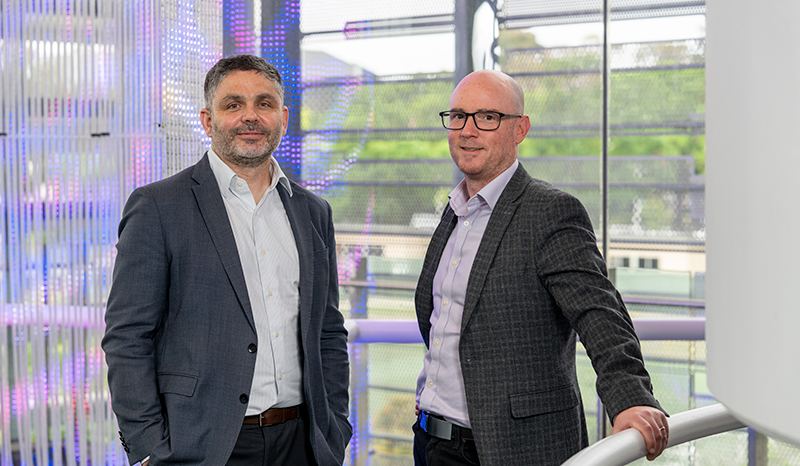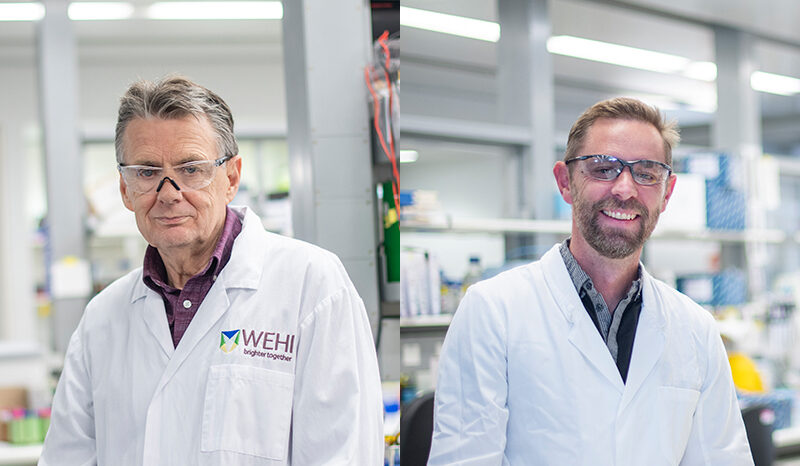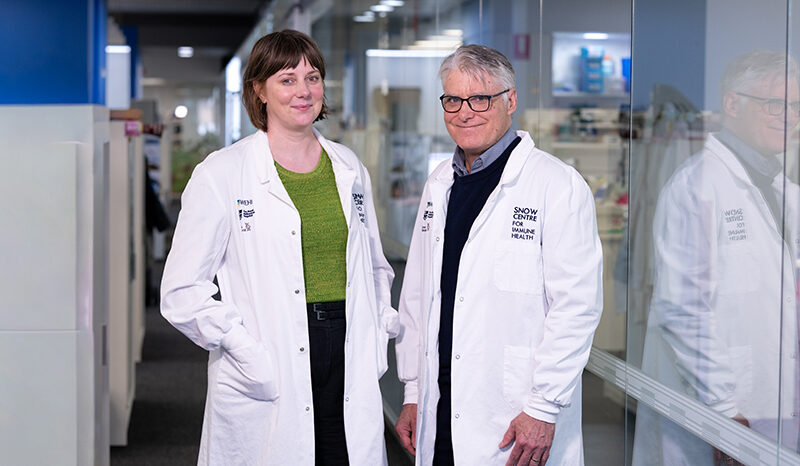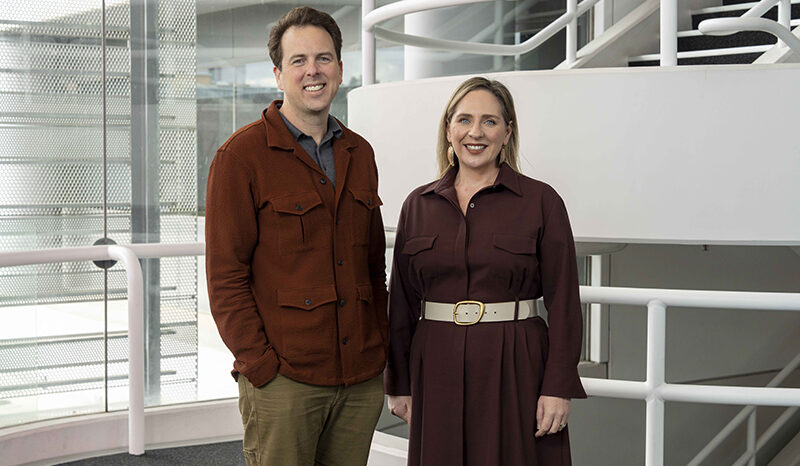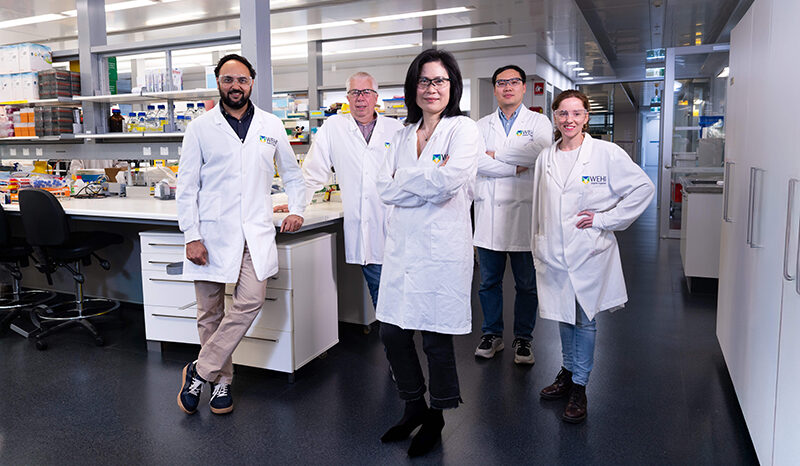Cutting-edge technologies are helping Professor Edwin Hawkins (right) and Dr Michael Christie (left) create a faster path to diagnosis for people living with inflammatory diseases.
Professor Edwin Hawkins
Michael and I share a quiet obsession with guitars and an insatiable appetite for solving complex scientific problems. While these passions connect us, it’s the yin and yang of our skills that drive new discoveries.
At the Colonial Foundation Diagnostics Centre, our collaboration thrives on this synergy: I bring deep technical expertise in spatial omics, while Michael, deputy director of pathology at the Royal Melbourne Hospital, ensures clinical relevance.
Michael pinpoints cases where advanced analysis will have the greatest impact. This drives efficiency while pushing boundaries by fusing clinical practice with world-leading 3D tissue mapping technology (spatial omics), enhanced by AI and machine learning.
My path to science was fuelled not only by curiosity, but by an unwavering stubbornness to achieve what others thought impossible. Millions of Australians live with chronic inflammatory diseases, yet diagnosis requires multiple invasive tests that don’t capture the complete picture.
Our centre aims to deliver tests in a fraction of the time, with minimal intervention. By uniting WEHI’s future science tech with Michael’s clinical expertise, we can tackle the biggest patient challenges at fantastic speed – accelerating the journey from discovery to treatment.
What once took dozens of labs and years to complete in the early 2000s can now be done on a single patient tissue section during a standard pathology test.
Spatial omics is the next revolution. Like the microscope transformed infectious disease research in the 19th century, spatial omics is unlocking a new era of possibilities – almost like a third eye has been opened.
Thanks to these powerful technologies, Michael and I now analyse complex cell communications never seen before, on a daily basis.
Our five-year vision is to combine complex genetic data with spatial omics to create detailed cell-by-cell maps or ‘atlases’ of disease, analysed by AI and machine learning. Our ultimate goal? To embed these models into standard diagnostic tests, delivering profound patient benefits.
Dr Michael Christie
Early in my career, I recognised the transformative power of emerging technologies, especially in the fields of genetics and sophisticated biotechnology. I considered these critical drivers of progress, both in scientific discovery and practical medical applications.
This outlook shaped my career, always combining patient care with cutting-edge research.
My role at the centre adds a layer of interpretation through diagnostic pathology. Edwin’s expertise scales this interpretation massively.
We’re developing digital pathology across Victoria’s network. Once slides are digitised and combined with AI, machine learning and spatial omics, the diagnostic leaps will be immense.
I envision a future where digitised slides and advanced algorithms are integrated at every step, alongside spatial omics analysis, vastly improving diagnostic accuracy and depth. The advancements will be breathtaking.
In time, we’ll analyse hundreds of thousands of biopsies across thousands of genes – astronomical amounts of data. For example, if we’re looking at 20 patients, we’re talking about billions of cells.
Our goal is deeply rooted in enhancing patient care: improving diagnosis, understanding disease mechanisms and dramatically shortening diagnostic time.
This will empower patients with earlier, more accurate detection, better treatment, understanding recurrence and even identifying family risk.
There’s a phrase, the ‘diagnostic odyssey’ – the often long journey that patients endure to receive a diagnosis. Delays can be devastating, as chronic inflammation left untreated can permanently damage organs.
About 1-in-10 Australians have a chronic inflammatory disease, like rheumatoid arthritis and lupus. Part of our task is to turbocharge what is known about these complex diseases, driving understanding from lab to clinic, giving patients faster, more precise answers.
Co-led by WEHI and the Royal Melbourne Hospital, and supported by a $21m philanthropic investment from the Colonial Foundation, the Colonial Foundation Diagnostics Centre is advancing precision diagnosis for diseases that affect millions of Australians.


